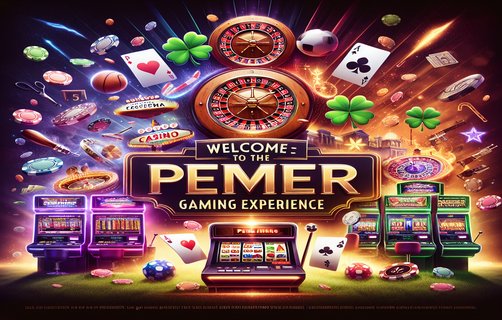The Psychology of Poker Machines: Understanding Game Mechanics and Casino Insights
The world of poker machine games, also known as slot machines, encapsulates more than just colorful graphics and spinning reels; it delves deep into the psychology of gambling and player engagement. Understanding the underlying mechanics and dynamics can significantly enhance your gaming experience. In this exploration, we will unravel the complexities of various aspects of modern casino gaming: from free casino games to adapting to gambling law changes.
Free Casino Games are often used as a gateway for players to engage with poker machines without financial commitment. These games leverage the psychological principle of **loss aversion**; people prefer avoiding losses over acquiring equivalent gains. By allowing players to experience the thrill of spinning the reels without the risk of losing money, casinos can foster a sense of addiction to the game. Players become emotionally invested, enjoying the adrenaline rush from wins, even if they are not real money wins. This exposure can lead to increased participation once they transition to real money games, driven by the anticipation that comes with potential gains.
Another fascinating aspect of poker machines is the incorporation of a Live Croupier feature. In contrast to traditional slots, live croupiers present a unique psychological appeal through social interaction. The element of a human dealer introduces an aspect of realism and connection that automated machines lack. This interaction can create a sense of community among players, leveraging the **social proof** theory; as players see others engage positively, they are more likely to join in. This social component can effectively enhance the gaming experience, keeping players invested in the session longer.
When discussing slot games, it is crucial to address the Bonus Terms Clarity. Transparent bonus terms can significantly influence player behavior. Unscrupulous terms can lead to disappointment and distrust, while clear, fair terms can facilitate a deeper connection and loyalty among players. The psychological principle of **transparency** is reinforced here; players are more likely to engage with games and platforms that showcase honesty. As players navigate through the complexities of bonus structures, clarity can help foster a sense of security and satisfaction.

Moreover, some players might exhibit Continuing Aggression in their gaming style. This term refers to a tendency to chase losses aggressively and maintain high-stakes gameplay in an attempt to recover lost bets. The connection to **cognitive dissonance** becomes evident here; the discomfort arising from losses can drive players to make erratic or impulsive choices to alleviate that discomfort. Understanding this tendency can be crucial for both players and operators, highlighting the importance of responsible gaming practices and self-awareness.

With advancements in technology, Push Notifications have also emerged as a significant tool for casinos to engage with players. These notifications can remind players when they have bonuses available, inform them about new games, or promote special events. The concept of **timely engagement** is rooted in psychological triggers that encourage immediate action, tapping into the players’ fear of missing out (FOMO). This bidirectional communication keeps players dialed into their gaming habits, often leading them back to the machines.
However, amidst the exciting interplay of these elements lies the need for awareness regarding Gambling Law Changes. As the regulatory landscape evolves, so should player knowledge. The psychological implications of legal changes can create uncertainty and anxiety among players. Understanding the implications of these laws can empower players, helping them feel more meaningful control over their gambling practices and minimizing the propensity for reckless behavior.
To avoid overwhelming players with information, a well-structured FAQ Section on gaming platforms can serve as an invaluable resource. Through this, operators can address frequently asked questions, provide guidance, and clarify common misconceptions. This approach can significantly reduce anxiety and confusion, ultimately fostering a sense of trust and community between players and the casino.
In conclusion, the interplay between poker machine games and psychological engagement is profound. By understanding elements like free games, live croupiers, bonus clarity, aggressive behavior, notifications, changing laws, and informative resources, players can foster a more enjoyable and responsible gaming experience. Recognizing these components can empower players, transforming their experience from mere entertainment to a balanced, enjoyable endeavor.
